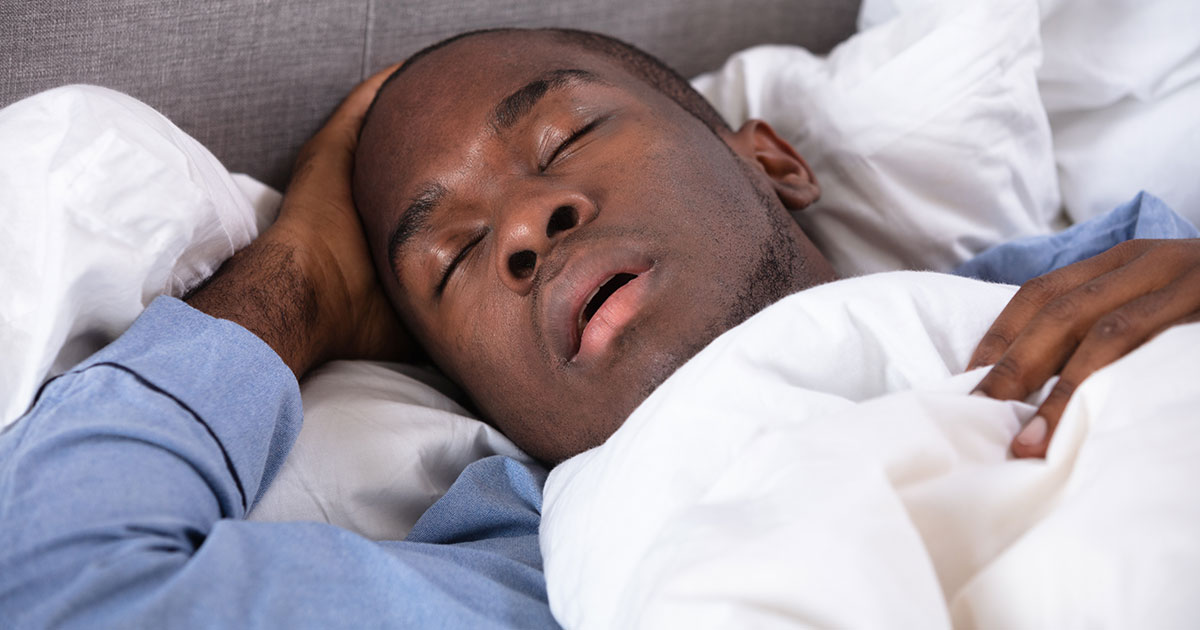Can You Test Yourself for Sleep Apnea?
Posted On 5/9/2023 12:00:00 AM by Bruce Kanehl

If you suffer from excessive daytime sleepiness, you might be wondering if sleep apnea is to blame and whether you should get tested for this condition. While being tired daily can simply be related to insufficient or inadequate sleep at night, from a health and safety standpoint, it’s almost always worth speaking with a doctor who can help determine whether sleep apnea is the cause of your fatigue.
While your doctor typically diagnoses sleep apnea after a sleep study is performed at a lab, home tests are now available for those who want to find out if it is the cause of their daytime exhaustion in the comfort of their own home. Self-diagnosing sleep apnea with an at-home test isn’t suitable for everyone. However, it is increasingly considered a convenient and cost-effective alternative to in-lab sleep studies.
How can I check my sleep apnea at home?
If you think you may have sleep apnea, the best way to check is to get a professional sleep study done. However, if that isn't possible or convenient for you, there are several home testing options available. These may include devices such as a pulse oximeter or a Fitbit-style device which track your breathing and heart rate while you sleep. There are also apps available which can be used to measure snoring and assess potential risk factors of obstructive sleep apnea. These tests should not replace an official diagnosis by a doctor but can give an indication of whether further investigation into the issue is warranted.
Pros and Cons of Home Sleep Apnea Tests
An at-home sleep apnea test is an easy way to discover whether you’re having trouble breathing at night. The test utilizes a breathing monitor that tracks your breaths, oxygen levels, and breathing effort while you sleep. While DIY tests don’t fully capture what’s monitored in a lab during overnight sleep studies, they’re often effective in determining whether you have the condition.
Pros of home sleep apnea tests include:
- DIY tests are administered in the comfort of your own home and bed, which helps to eliminate some anxiety and discomfort you may experience at a sleep lab. You simply affix the finger oxygen probe, chest belt, and nasal tube before hitting the pillow.
- They cost less, which makes them the preferred first choice for health insurers.
- They aren’t as detailed as in-lab testing. And because many people with sleep apnea also breathe through their mouths, they can send false signals to the breathing monitor.
- They only measure breathing, not your actual sleep patterns.
- The scope of the test is limited. Experts suggest only people already assumed to have a high risk for sleep apnea should use this form of testing.
The downside to home tests:
Home tests for sleep apnea aren’t for everyone. Those with pre-existing conditions such as heart failure, lung disease, hypoventilation, and other sleep disorders, are not typically the best candidates for at-home testing.
When You Should Have a Sleep Apnea Test Done in a Lab Setting
Whole night and split night, in-lab sleep studies are non-invasive procedures that monitor your breathing, brain activity, and other vital signs while you sleep. The in-lab test monitors more than just your breathing. It also records data on:
- Sleep cycle
- Heart rate and blood pressure
- Breathing, including lapses, snoring, and oxygen levels
- Sleep position and limb movements
In-lab sleep tests are almost always recommended for people suspected of having obstructive sleep apnea (OSA).
Do I need a sleep study to know if I have sleep apnea?
The only way to truly know if you have sleep apnea is with a sleep study. A sleep study, also known as nocturnal polysomnography, is an overnight medical examination used to diagnose and assess various sleep disorders. It involves monitoring several physical body functions while the patient sleeps.
Sleep Apnea Treatment Options
Whether you decide to test yourself or get your testing performed at a lab, there are excellent non-surgical solutions available to you that your dentist can prescribe for sleep apnea. Kanehl Dental Group provides proven treatment for the three major types of sleep apnea, including:
- Obstructive sleep apnea (OSA)
- Central sleep apnea (CSA)
- Complex sleep apnea syndrome (CSAS), aka mixed sleep apnea or treatment-emergent central sleep apnea
Dental appliances such as oral bite splints are often an excellent sleep apnea treatment for many of our patients. They tend to be more comfortable than other solutions like CPAP machines, which have side effects for many people, including dry mouth, skin irritation, and bloating. On the other hand, a device called a bite splint is personally fitted by your dentist, and most patients report few if any side effects from using one. This non-invasive device helps open your body’s airway, so you breathe more easily while you sleep.
If you suspect you might have sleep apnea, contact Kanehl Dental Group today to book a consultation. We can help you get the good night’s sleep you need and deserve!
Related Articles
Can Your Smartwatch Detect Sleep Apnea?
Published on: 1/12/2024 12:00:00 AM
While smartwatches can do many things, including reporting on health metrics, you should always seek advice from a medical professional when diagnosing sleep apnea.
Why Do Young People Get Sleep Apnea?
Published on: 11/27/2023 12:00:00 AM
Depending on diet and exercise habits, a young person could experience symptoms of sleep apnea. It’s important to understand the causes and potential remedies to sleep apnea to avoid serious health complications.
Bruce A. Kanehl, D.D.S.
7933 Baymeadows Way #5
Jacksonville, FL 32256
(904) 731-2162
To learn more about how we can make you smile, request a consultation today.
Dr. Kanehl is one of a select few in the Jacksonville area to be a member of the American Academy of Dental Sleep Medicine and to treat sleep apnea with oral appliance therapy.




